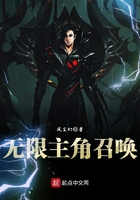AT THE EXACT HOUR, the prince, powdered and shaven, walked into the dining-room, where there were waiting for him his daughter-in-law, Princess Marya, Mademoiselle Bourienne, and the prince’s architect, who, by a strange whim of the old gentleman’s, dined at his table, though being an insignificant person of no social standing, he would not naturally have expected to be treated with such honour. The prince, who was in practice a firm stickler for distinctions of tank, and rarely admitted to his table even important provincial functionaries, had suddenly pitched on the architect Mihail Ivanovitch, blowing his nose in a check pocket-handkerchief in the corner, to illustrate the theory that all men are equal, and had more than once impressed upon his daughter that Mihail Ivanovitch was every whit as good as himself and her. At table the prince addressed his conversation to the taciturn architect more often than to any one.
In the dining-room, which, like all the other rooms in the house, was immensely lofty, the prince’s entrance was awaited by all the members of his household and the footmen, standing behind each chair. The butler with a table-napkin on his arm scanned the setting of the table, ****** signs to the footmen, and continually he glanced uneasily from the clock on the wall to the door, by which the prince was to enter. Prince Andrey stood at an immense golden frame on the wall that was new to him. It contained the genealogical tree of the Bolkonskys, and hanging opposite it was a frame, equally immense, with a badly painted representation (evidently the work of some household artist) of a reigning prince in a crown, intended for the descendant of Rurik and founder of the family of the Bolkonsky princes. Prince Andrey looked at this genealogical tree shaking his head, and he laughed.
“There you have him all over!” he said to Princess Marya as she came up to him.
Princess Marya looked at her brother in surprise. She did not know what he was smiling at. Everything her father did inspired in her reverence that did not admit of criticism.
“Every one has his weak spot,” Prince Andrey went on; “with his vast intellect to condescend to such triviality!”
Princess Marya could not understand the boldness of her brother’s criticism and was ****** ready to protest, when the step they were all listening for was heard coming from the study. The prince walked in with a quick, lively step, as he always walked, as though intentionally contrasting the elasticity of his movements with the rigidity of the routine of the house. At that instant the big clock struck two, and another clock in the drawing-room echoed it in thinner tones. The prince stood still; his keen, stern eyes gleaming under his bushy, overhanging brows scanned all the company and rested on the little princess. The little princess experienced at that moment the sensation that courtiers know on the entrance of the Tsar, that feeling of awe and veneration that this old man inspired in every one about him. He stroked the little princess on the head, and then with an awkward movement patted her on her neck.
“I’m glad, glad to see you,” he said, and looking intently into her eyes he walked away and sat down in his place. “Sit down, sit down, Mihail Ivanovitch, sit down.”
He pointed his daughter-in-law to a seat beside him. The footman moved a chair back for her.
“Ho, ho!” said the old man, looking at her rounded figure. “You’ve not lost time; that’s bad!” He laughed a dry, cold, unpleasant laugh, laughing as he always did with his lips, but not with his eyes. “You must have exercise, as much exercise as possible, as much as possible,” he said.
The little princess did not hear or did not care to hear his words. She sat dumb and seemed disconcerted. The prince asked after her father, and she began to talk and to smile. He asked her about common acquaintances; the princess became more and more animated, and began talking away, giving the prince greetings from various people and retailing the gossip of the town.
“Poor Countess Apraxin has lost her husband; she has quite cried her eyes out, poor dear,” she said, growing more and more lively.
As she became livelier, the prince looked more and more sternly at her, and all at once, as though he had studied her sufficiently and had formed a clear idea of her, he turned away and addressed Mihail Ivanovitch:
“Well, Mihail Ivanovitch, our friend Bonaparte is to have a bad time of it. Prince Andrey” (this was how he always spoke of his son) “has been telling me what forces are being massed against him! While you and I have always looked upon him as a very insignificant person.”














